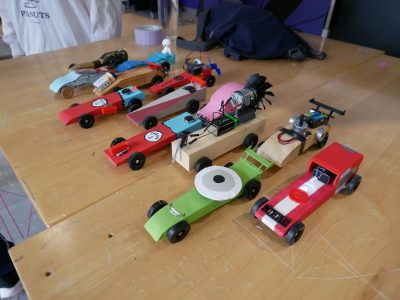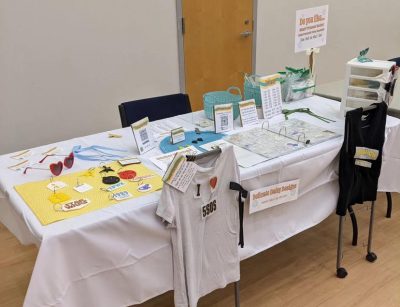UConn's Annual Maker Fair
Come join us on Thursday, April 24th 2025 from 2-6 p.m. on Fairfield Way!
Makers from all across the university will come together to showcase their inventions, artwork, crafts, businesses, and more - come and be inspired by UConn's creativity, and bring a friend!
Our 7th Annual Modified Pinewood Derby will also take place from 3pm-4pm. Participants from across campus create a wooden car that includes a basic circuit and 3D Printed component and compete from our grand prize.

Are you a creator, builder, artist, or innovator? Whether you're a hobbyist, student, entrepreneur, or seasoned professional, YOU can be a Maker! We’re looking for passionate individuals and teams to showcase their projects on Fairfield Way. This is your chance to share your work, inspire others, and connect with a community of makers. No project is too big or too small—if you make something, we want to see it! Fill out the application to showcase your work, have a demo, or sell your creations. For any questions, email faata.adam@uconn.edu

The 7th annual modified Pinewood Derby will take place from 3pm-4pm on Thursday April 24th during the Maker Fair. Groups of 2-4 can sign up using the link below, collect their kit from the IZone Makerspace during our open hours, and utilize the equipment to create their car.
Rules:
Cars must use the provided block of wood, nails, and plastic wheels. All 4 wheels must touch the ground.
Cars must include a 3D Printed component and some type of electrical circuit.
Maximum weight of 12oz.
Cars must be submitted to the Makerspace by 9pm, Wednesday April 23rd.



